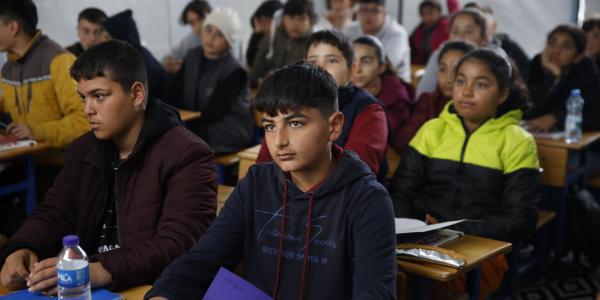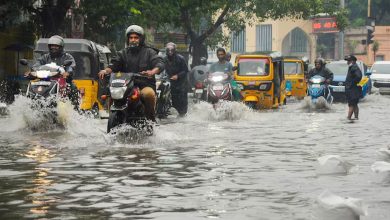Two months after the TÜRKIYE earthquakes, 2.5 million children in need of human support face enormous obstacles
Logan D Suza
On April 6, 2023, UNICEF issued a warning that 2.5 million children in Türkiye still require humanitarian assistance and are at risk of poverty, child labor, or child marriage two months after two devastating earthquakes struck northern Syria.
According to UNICEF Representative Regina De Dominicis in Türkiye, “Children had their lives turned upside down by the earthquakes, and while the humanitarian response was swift and significant, the reality is that the immediate futures of millions of children remain uncertain, with families’ ability to begin picking up the pieces of their lives severely hampered.” As a crucial part of the recovery, more support is necessary to ensure that children are protected and that their needs are met.
While the Public authority of Türkiye and compassionate accomplices keep attempting to meet the most earnest requirements and offer essential types of assistance, families likewise need longer-term backing to recuperate and start to revamp their lives. To ensure that the disaster does not have an effect on children for many years or even decades to come, recovery efforts must place them at the forefront.
More than 149,000 children and caregivers have received psychosocial support from UNICEF as part of the immediate response, which has collaborated closely with partners to support reunification and prevent family separation. Child protection services must continue uninterrupted and these efforts must continue.
The Ministry of Health is receiving vaccines from UNICEF, including polio vaccines (for 360,000 children) and diphtheria and tetanus vaccines (for more than 283,000 children). UNICEF is likewise giving extra clinical gear and supplies.
In excess of 390,000 individuals have been given cleanliness units, winter garments, electrical warmers and covers. While damaged water networks are being fixed, access to clean, safe water remains a major concern. Thousands of people have received water from UNICEF, and the organization is quickly expanding this partnership.
In addition, UNICEF has established 37 hubs in ten provinces to provide psychosocial support, catch-up classes, assistance with homework, and protection services to children, adolescents, and their families. These hubs have reached nearly 26,000 children and caregivers to date. In these hubs, around 5,000 youth volunteers from the Ministry of Youth and Sports who have been trained by UNICEF will help provide life skills activities and support for adolescent engagement and participation.
The quakes affected the existences of almost 4,000,000 kids signed up for school, including 350,000 evacuee and transient youngsters. In earthquake-affected areas, nearly 1.5 million children have resumed their education, and another 250,000 children have relocated elsewhere in the country to continue their education. However, despite the reopening of formal education in the most affected provinces, many others have not yet regained full access to education.
UNICEF is offering monetary help to fix in excess of 1,170 schools, which will help in excess of 300,000 kids, and supporting the Service of Public Training with transitory measures, among them in excess of 400 tents for getting the hang of including get up to speed classes and test readiness, helping around 23,000 youngsters each day, and pre-assembled study halls or chairman rooms. 1,000 school advocates and educators are being prepared to recognize kids needing psychosocial support.
In order to keep working with children who have been affected by the earthquakes, UNICEF in Türkiye is asking for an additional $138 million. It also asks donors to make sure that this money is given out quickly and in a flexible way so that UNICEF and its partners can respond to changing needs quickly and consistently.
Recognizing that children are among the most vulnerable, UNICEF is also urging the international community to ensure that children’s needs are given top priority when funding is allocated to support child-centered response and recovery.





